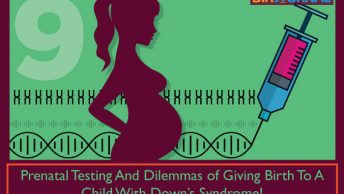When someone finds out that they have been exposed to asbestos or have people in their family with mesothelioma, the first thought that comes to their mind is ‘Am I going to get it too?’ Well, the good news is that only a small percentage of people exposed to asbestos suffer from mesothelioma.
As the name indicates, this cancer primarily affects the mesothelium (the lining surrounding vital organs like lungs and heart). The function of the mesothelium is extremely important for the heart and lungs because it provides lubrication that assists in the motion of these organs. Mesothelioma can be difficult to diagnose because its symptoms can be similar to other respiratory diseases. Some of the common symptoms include chest pain, presence of blood in lung fluid and chronic cough.
There are two primary types of the disease. Pleural mesothelioma is the most common type and affects about 70% of the sufferers. The other dominant types are peritoneal mesothelioma that targets the abdominal cavity, and pericardial mesothelioma which affects the heart.
The Role of Genetics in Mesothelioma Development
A recent study has found another culprit besides asbestos that may put someone at risk of developing mesothelioma. A gene has been identified that makes people highly susceptible to developing mesothelioma if they are exposed to asbestos.
“This discovery is a first step in understanding the role of the BAP1 gene and its potential utility when screening for mutations in those at high risk,” said Michele Carbone, M.D., Ph.D., study co-leader and director of the University of Hawaii Cancer Center.
“Identifying people at greatest risk for developing mesothelioma, especially those exposed to dangerous levels of asbestos and erionite worldwide, is a task made easier by virtue of this discovery.”
The researchers from the University of Hawaii Cancer Center found that people who have mutations in BAP1 gene and also have a strong family history of mesothelioma become highly susceptible to the disease. They studied two US families who had very high rates of mesothelioma in the family and observed that these people had mutations in BAP1 gene. They also studied a group of 26 people who did not have family history of mesothelioma but developed the disease. People in this group also carried mutations in BAP1 gene.
Joseph R. Testa, Ph.D., Carol and Kenneth E. Weg chair in Human Genetics at Fox Chase Cancer Center, said, “This is the first study to demonstrate that individual genetic makeup can greatly influence susceptibility to mesothelioma. People exposed to dangerous levels of asbestos or erionite, those with a strong family history of mesothelioma, or those who have been previously diagnosed with a rare tumor of the eye known as uveal melanoma, may benefit from this new discovery.”
Another opinion expressed by Donald Blair, Ph.D., NCI, states that, “The discovery that the BAP1 gene is involved in a new cancer syndrome characterized especially by uveal melanoma and mesothelioma provides yet another example of the critical importance of the detailed genetic analysis of human tumors.” He further added,
“Such analysis can lead to the discovery of genes involved in the same tumors that arise spontaneously. This is an important advance in developing our understanding of the biological mechanisms underlying these tumors.“












